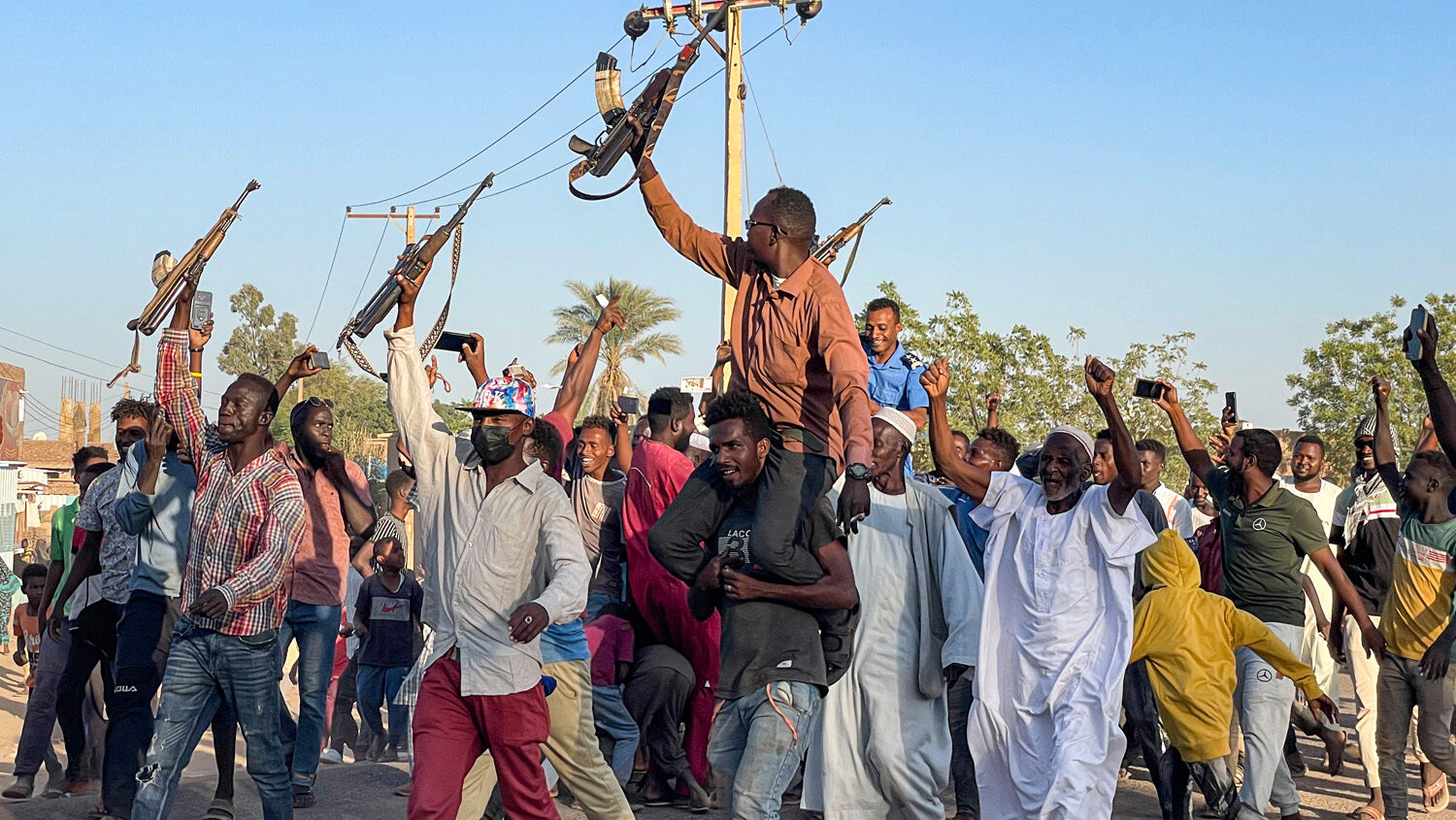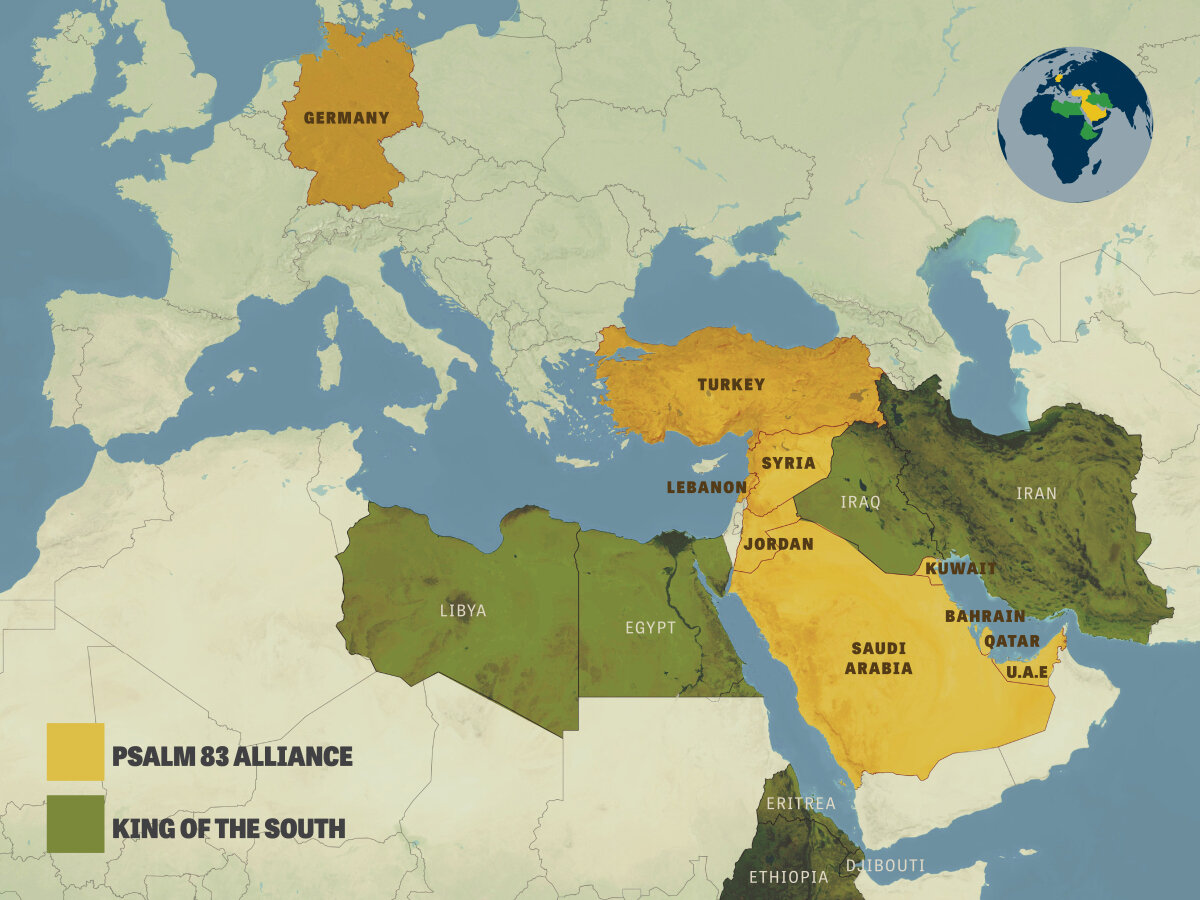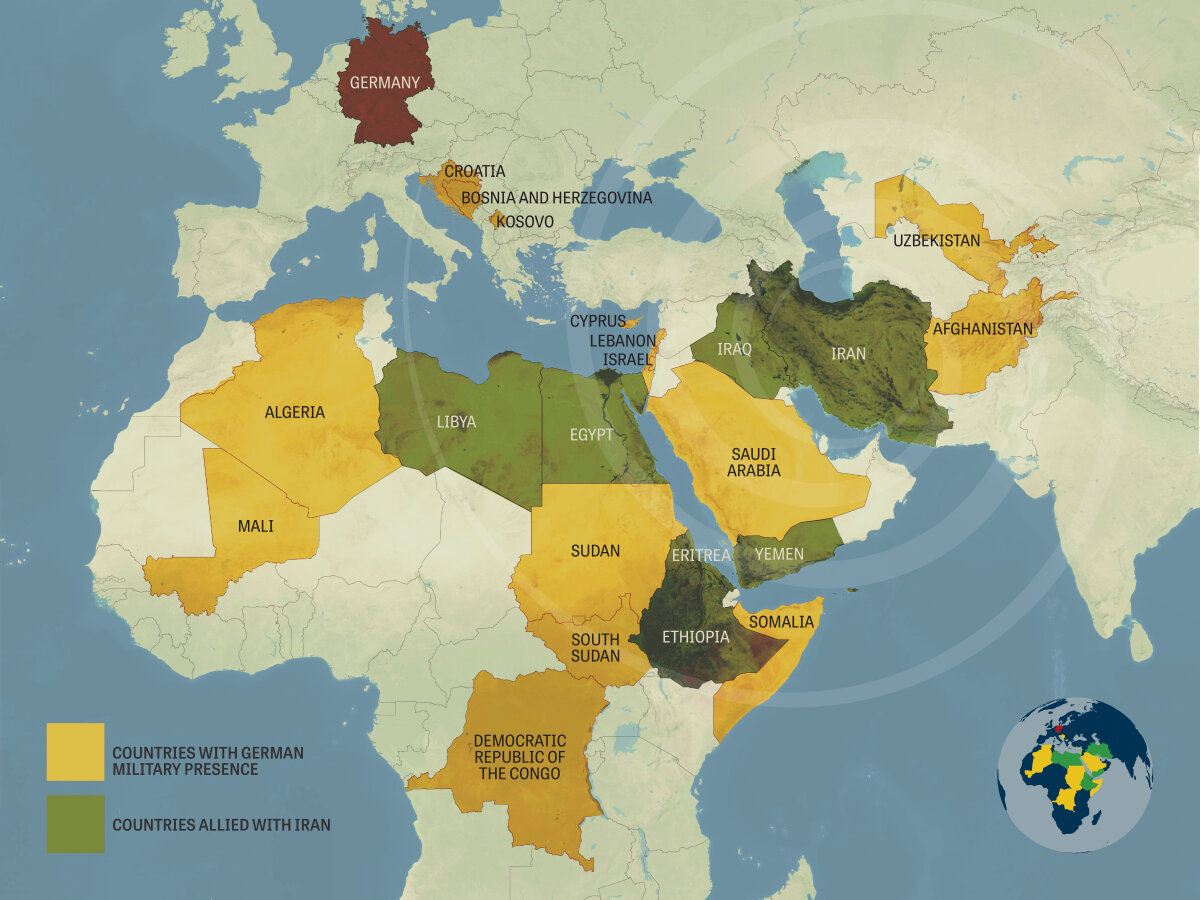
Sudan: Another Front in the Battle for the Red Sea
Sudan has been engulfed in war since last April. This struggle has the potential to become a full-blown civil war with major implications for global trade.
Sudan is rich with vital resources, including chromite, gold, iron, uranium and zinc. It is also home to two major ports, Port Sudan and Port Suakin, on the Red Sea, through which some 20 percent of container shipping passes each year.
This war may look like a simple power grab, but it is a critical trend in world events.
Civil War
Sudan was ruled for years by Omar al-Bashir. By the end of his reign, he relied on two competing security forces: the Sudanese Armed Forces (saf) and an Arab militia initially called the Janjaweed, but later known as the Rapid Support Forces (rsf). When mass uprisings broke out in December 2018, the saf and rsf turned on Bashir, removing him from office in April 2019.
After Bashir’s fall, Abdel Fattah al-Burhan took control of the saf, while Mohammed Hamdan Dagalo (known as Hemedti) controlled the rsf. The two ruled Sudan jointly, reneging on agreements to hand power to the people.
In April 2023, Hemedti lost interest in being second in command, and he tried to gain sole power. He sent 2,000 men to Burhan’s personal residence. A shootout followed, which expanded into a nationwide war.
The rsf is currently winning the war, but Burhan is generally viewed as the more legitimate ruler.
Jonas Horner, an independent expert on Sudan, believes the rsf cannot sustain the large territory it controls. It funds recruitment by allowing soldiers to loot the cities they take. Sudan’s people hate the rsf. Hemedti has directed even greater atrocities in this conflict than in the last Sudanese war.
Horner said, “[The rsf’s] atrocities and their hard-core cruelty … is probably their single biggest obstacle and makes the prospect of them governing the country more difficult.”
A Proxy War
The saf’s main supporter at the moment is Egypt. The rsf’s is the United Arab Emirates (along with Saudi Arabia).
But Iran has recently emerged as a quiet supporter of the saf, which is more radical Islamist. After a roughly seven-year hiatus in Iranian-Sudanese relations, they agreed to restore diplomatic ties on Oct. 9, 2023.
Analysts fear Iran will supply military aid to the saf and include Burhan’s forces in its drone program. These relations could cripple America’s attempts to get Sudan to normalize relations with Israel.
Hafsa Halawa, an independent consultant at the Middle East Institute, said this mend in relations leaves the Sudan war “exposed to further proxy engagement that will likely only prolong the fighting and give both sides more oxygen to keep fighting.”
But the saf is not the only side with quiet supporters.
The European Union
The European Union seemingly supports Hemedti. Europe claimed it never worked with the rsf, but that was revealed to be a lie in a piece titled “The EU’s ‘Pact With the Devil,’” by investigative journalists Gwenaëlle Lenoir and Patricia Houn.
During Europe’s migration crisis, the EU entrusted Sudan with keeping migrants from reaching Libya (from where they would travel to Europe). The EU knew the rsf controlled the border at the time.
Through the Khartoum Process, Europe exchanged information with Sudanese authorities, trained border agents, and supplied technological equipment. Europe claimed the technology was for finding false documents of illegal immigrants. But most migrants traveling through Sudan are simply walking through the desert without documents. Because of this, the training of Sudanese border agents didn’t focus on official border procedures. So what was it for?
Lenoir said there is no evidence of direct European funding to the rsf, but that “a lot of people told us about money in Sudan.” She mentioned a body called the EU Trust Fund for Africa and said:
[T]he problem with this EU Trust Fund for Africa is that it’s not clear at all, and all the people we interviewed in European Parliament told us that … they didn’t succeed [in finding] clear information about the use of the money of this EU trust fund.
Lenoir and Houn claimed the EU contributed to Hemedti’s rise by treating him like a head of state when he was merely second in command. Because of rsf war crimes, many have condemned this relationship. After the group attacked protesters in 2019, the EU officially cut ties, but it seems its influence did not end there. “Western democracies can no longer have an openly good relationship with him [Hemedti], but his emissaries are still received, discreetly, in European chancelleries,” reported Lenoir and Houn.
No European country has said it will not recognize Hemedti’s authority should he win the war. Lenoir believes that Western diplomats want Hemedti to win, largely because he will slow migration to Europe.
Europe is working to strengthen its African influence. One Western diplomat told Al Jazeera that the EU is signing partnerships with strong African leaders.
Sudan is no small matter in Europe’s African aspirations. The diplomat said Europe will likely work with the rsf in the future if that is necessary to strengthen its regional power.
Europe Vs. Iran?
Sudan’s conflict is not a proxy war, but it could become one, especially between Europe and Iran.
For over a decade, Europe and Iran have been fighting over nations in the region (e.g. Algeria, Libya, Yemen). In the April 2013 Philadelphia Trumpet, editor in chief Gerald Flurry warned this trend would worsen. Daniel 11:40-43 give one of the most important prophecies for today. Verse 40 reads: “And at the time of the end shall the king of the south push at him: and the king of the north shall come against him like a whirlwind, with chariots, and with horsemen, and with many ships; and he shall enter into the countries, and shall overflow and pass over.”
For years, Mr. Flurry has identified “the king of the south” as radical Islam led by Iran and “the king of the north” as a German-led bloc of European nations. (Both these identities are proved in our free booklet History and Prophecy of the Middle East.)
Verse 40 shows that Iran side will push at Europe, resulting in a German-led attack! In “The Battle for the Red Sea,” Mr. Flurry said the Red Sea, which Sudan controls parts of, could play a major role in this push.
Disrupting Red Sea trade hurts Israel—but it is also a direct attack on Europe. After the Houthis’ brazen December 9 declaration, the world’s largest shipping companies announced they would halt delivery through the Red Sea and instead sail around South Africa to reach the West. Four of the five largest shipping companies are European: the Swiss-Italian Mediterranean Shipping Co., Danish A.P. Moller-Maersk, French shipping group cma cgm, and Germany’s Hapag-Lloyd, which is headquartered in Hamburg. Disrupting Red Sea commerce allows the Houthis to hurt Germany in a way Hezbollah cannot.
You cannot overstate how alarming this type of activity is to Germany and other European nations! They simply cannot permit Iran to obstruct these crucial trade routes.
This is where Sudan comes into the picture. Multiple commentators recognize that Iran’s takeover of Yemen reveals its overall strategy in the Middle East. It seeks to control the Red Sea—the greatest trade route in the world! With this control, Tehran can virtually close or open Europe’s tap of Middle Eastern oil. Mr. Flurry warned that Iran’s push could come from the Red Sea. We are seeing the beginning stages of this today.
Controlling Sudan would greatly help Iran’s ambitions in this area. But the EU may not so passively allow another Iranian takeover.
Verse 40 says that, after Iran’s push, “the king of the north shall come against him [the king of the south] like a whirlwind ….”
In his free booklet German’s Secret Strategy to Destroy Iran, Mr. Flurry proves that this whirlwind refers to a Europe-led attack from German-allied, moderate Islamic nations that surround Iran and its radically Islamist allies. This is clarified by an alliance prophesied in Psalm 83, which is explained thoroughly in Mr. Flurry’s booklet The King of the South.

(The above map shows where certain countries are prophesied to align. The map below shows how other countries could develop, though it should be noted that things have changed somewhat since it was made in 2017.)

The rsf’s supporters mainly align with the coming European alliance while the SAF’s supporters align with Iran.
Though neither Europe nor Iran are too heavily involved at the moment (at least visibly), this struggle could very well prove to be a preview of the German-Iranian clash coming in a few short years. (It is certainly a preview of the coming war between moderate and radical Islam that will accompany Germany’s whirlwind attack.)
Sudan’s Future
It’s not yet clear which side Sudan will be on. Iran could use Sudan’s ongoing conflict to fill the nation with its influence. It could supply Burhan, giving him victory while indebting him to Tehran.
Or the rsf could take the victory and maintain its relations with Saudi Arabia and the United Arab Emirates (which are both prophesied to align with Germany).
Many Sudanese refugees are seeking a better life in Europe, which is facing another migrant crisis. Europe sees this as well as Iran’s Red Sea strategy. Germany may decide to get directly involved and sway Sudan to its side. A future protest from Sudan’s populace could also affect where Khartoum aligns. Sudan is becoming yet another front in the battle between Europe and Iran.
